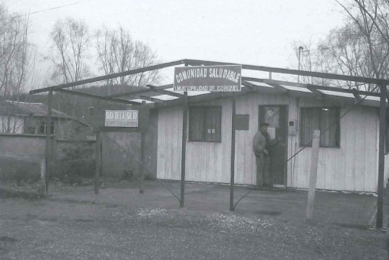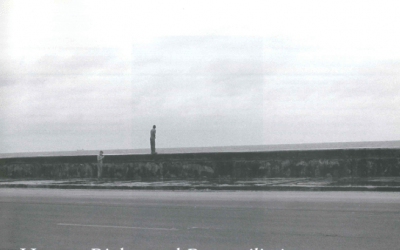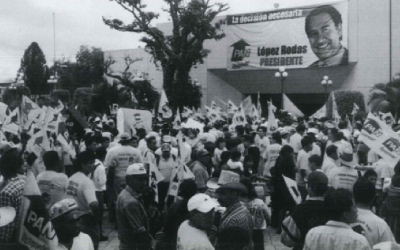Harvard Medical School Spanish in Chile
Service Learning

A community health center in the town of Coronel.
During this past summer, seven first-year Harvard Medical School students got the unique opportunity to hone their Spanish skills in the orphanages and schools of Santiago. They were participants in an innovative two month program in Chile which integrated Spanish instruction through immersion and international service learning (ISL). Inaugurated by the Harvard Medical School (HMS) and DRCLAS, the program built on the efforts of Dr. Guillermo Herrera, who for more than 25 years has created opportunities for over 500 HMS students to work in Latin America in different clinical and non-clinical settings and improve their Spanish proficiency. The DRCLAS Regional Office in Santiago, Chile organized this program in close collaboration with Harvard Medical School faculty and staff.
The first month of the program focused on enhancing the students’ existing knowledge of Spanish through full immersion. During this time, emphasis was placed on oral communication and the vocabulary the students needed in order to converse with Spanish-speaking patients. In the program’s second month, medical school students participated in an intensive ISL project—either working with children in orphanages or in after school settings in poor neighborhoods around Santiago. Some students volunteered at Manos y Naturaleza, an organization that provides a safe environment for children when school is not in session. During their experience, the HMS students discovered that service learning, a volunteer experience in a social setting, involves incredible commitment, flexibility, patience and examination of both oneself and one’s surroundings. As one student explained, “I expected it (service learning) to be just another thing we would do to learn more language. However, I really did enjoy my time in a ‘different side of the tracks’…[I]t was extremely relevant to my understanding Chile and poverty in general.”
Many HMS students were drawn to the program due to their desire to improve their Spanish skills and their enthusiasm for practicing medicine in areas of the world where medical care is often less accessible than it is in the United States. In addition to the curriculum of the program, many students discovered that their host family was an invaluable educational tool—the home of the host family was described by a student as “one of our most important learning environments” while other students commented on the kindness of their host families who treated them as though they were family.
Perhaps most importantly, it appears that the experience that began in Chile for these seven students will continue long after their return to Cambridge. Upon leaving Santiago, many students expressed their determination to continue their Spanish education and some even plan to return to Chile in both professional and personal capacities.
Fall 2003, Volume III, Number 1
Amanda Austin, Harvard Law School student, a member of the DRCLAS publications department team.
Steve Reifenberg, director of the DRCLAS Chile office, wrote this report.
Related Articles
Human Rights and Reconciliation
I feel the strongest of bonds with Cuba. I was born there and left as an 11-year old with my family for the United States shortly after the revolution came to power. We thought our stay here would…
A Violence Called Democracy
It became known as Guatemala’s Black Thursday. Peasant demonstrators swept through the streets of Guatemala City. They smashed windows and burn cars, while some chanted “We want…
My World Is Not of This Kingdom
Gregory Rabassa translated My World Is Not of This Kingdom by João de Melo because it was the most astonishing novel he had read since One Hundred Years of Solitude. He undertook this…




